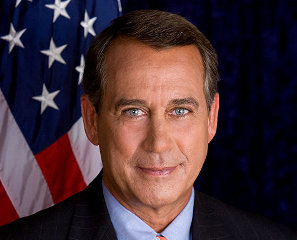
George Washington is said to have told Thomas Jefferson that the framers created the Senate to be the saucer designed to cool the hot tea of the House. The midterm elections have created a situation in Congress that will test this plan almost literally given the Tea Party has now fueled the Republican takeover of the House.
As John Boehner becomes the presumptive Speaker of the House, he finds himself in an enviable position to carry out Mitch McConnell’s priority of spending the next two years assuring Obama is a one term President. While the GOP failed to retake the Senate, this may turn out to play to the strength of the “Party of No.”
Boehner and other Republican leaders made no bones pre-election that should they win there will be no compromising with them. Assuming they hold true to this, the country can expect the House to be a fitful producer of subpoenas and extreme legislation designed to appease the Tea Party faithful. This also means that things that need to get done, like funding and budgeting, probably won’t. The House, which is constitutionally required to start all budget bills, may withhold providing funding for all manner of programs in an attempt to starve the government into submission.
The beauty being that the House’s proactive agenda will never pass the Senate who, with just a slight Democratic majority, will be hard-pressed to agree on much. While the House may be hotter than ever, the Senate will be an equally large heat-sink. The Senate and Obama will be the scapegoats for why the GOP will fail to deliver on their promises of things they were going to do, while enabling them to more effectively say no to the things they said they would stop. The economy will not improve much in this environment, leaving the Republicans able to continue to play the victims, and voters able to continue to blame the Democrats in 2012.
There is always the chance the Republicans will instead opt to work with the Democratic Senate and the President to cooperatively govern in the best interest of all of us, but the only reason to believe that, is the historical tendency of politicians to abandon their campaign rhetoric after the election. Ironically, citizens now find themselves in a position where they are best off only if the people they elected turn out to have been full of hot air during the campaign.
It’s going to be interesting to see how the next couple of years play out.

